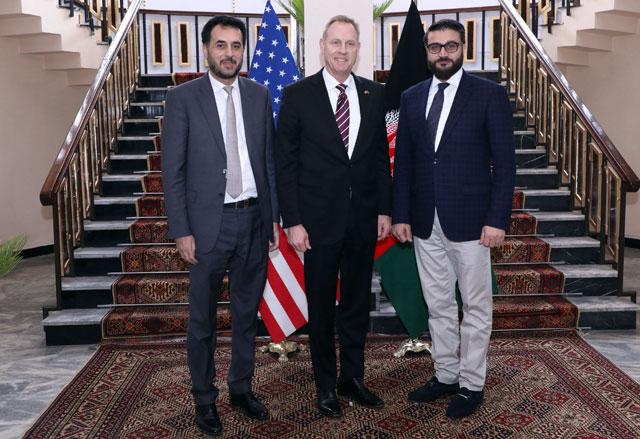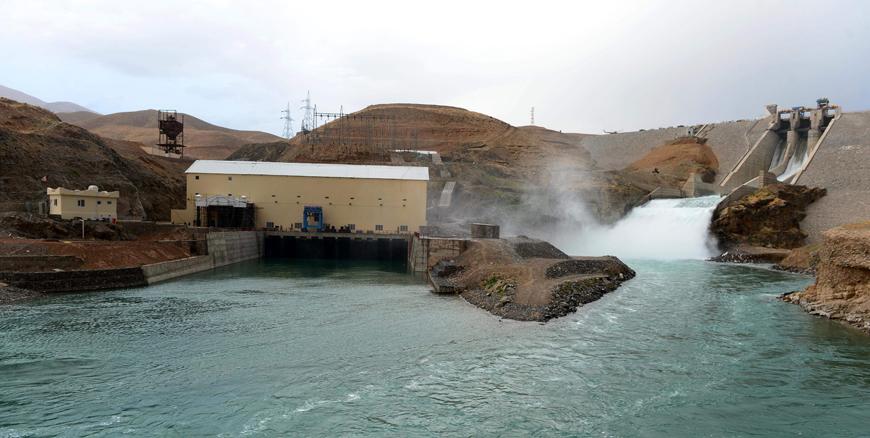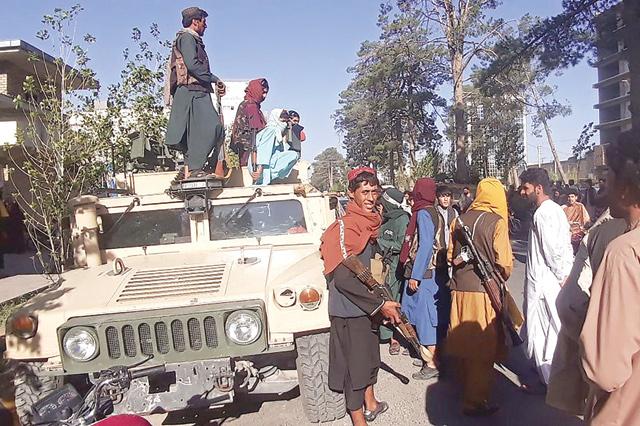You are here
In policy reversal, Obama slows pace of US troop withdrawal in Afghanistan
By Reuters - Oct 15,2015 - Last updated at Oct 15,2015
WASHINGTON — Reversing policy on Afghanistan, President Barack Obama announced on Thursday he will slow the pace of withdrawing US troops, prolonging the 14-year US engagement there and effectively handing off the task of pulling out to his successor.
Calling it a "modest but meaningful" adjustment to winding up the American presence in Afghanistan, Obama said the United States will maintain a force of 9,800 through most of 2016 because Afghan troops are not yet as strong as they need to be.
"If they were to fail, it would endanger the security of us all," Obama said, flanked by his Secretary of Defence Ash Carter, Chairman of the Joint Chiefs of Staff Joseph Dunford and Vice President Joe Biden.
Obama had previously aimed to withdraw all but a small US-embassy based force in the capital, Kabul, before leaving office in January 2017. Under the new plan, troops will be drawn down to 5,500 starting sometime in 2017 and based at four locations — Kabul, Bagram, Jalalabad and Kandahar.
Asked by a reporter at the end of his statement if he was disappointed in having to make the decision, Obama said he was not. He added, "This isn't the first time those adjustments have been made. This probably won't be the last," he said. "I suspect that we will continue to evaluate this going forward, as will the next president."
Obama said his decision followed months of deliberations with Afghanistan's leaders, Pentagon officials, field commanders and White House advisers about how best to support Afghan forces.
The decision also comes amid gains by Taliban militants, a point Obama acknowledged as he said they are still capable of launching deadly attacks on cities including Kabul.
The US-led coalition in Afghanistan ended its combat mission after 13 years of war at the end of 2014, and Afghan troops have since been in charge of the nation's security, with help from US and NATO troops.
But Afghan forces have struggled in assaults from Taliban militants, who briefly took over the northern city of Kunduz.
The US troops will continue in their role of training and advising Afghan forces, and also in ensuring that any remnants of Al Qaeda are prevented from posing a threat to US security, Obama said. They will not be engaged in combat missions, he said.
Obama's foreign policy has become an issue among candidates running for the White House in the November 2016 election.
Jeb Bush, one of a large array of Republican candidates, welcomed the move but said Obama should listen to his military commanders about further steps.
"While I am glad President Obama has dropped his plan to abandon the region entirely, if he is truly committed to fighting terrorism and securing a stable Afghanistan, he shouldn't short change what our military commanders have said they need to complete the mission," Bush said in a statement.
US military and administration officials have been discussing a slower timetable since the March visit to the White House of Afghan President Ashraf Ghani and Chief Executive Abdullah Abdullah. Obama spoke to the leaders on Wednesday, he said.
Ghani has been more supportive of the US presence than his predecessor, Hamid Karzai. Obama stressed that he viewed Washington as having a solid partner in the Afghan president.
Keeping 5,500 troops at four locations will cost about $14.6 billion per year, up from the estimated cost of $10 billion to keep a consolidated force at the Kabul embassy, officials said.
Obama said he would work with NATO allies, who also have indicated some interest in sustaining their presence. There are more than 6,000 non-US forces in Afghanistan as part of the "Resolute Support" mission.
Obama's predecessor, George W. Bush, sent a US-led force into Afghanistan soon after the September 11, 2001, attacks on the United States, aiming to destroy Al Qaeda and to oust the then-ruling Taliban that had sheltered the militant group.
The foreign ministry of Russia, which was engaged in a nearly 10-year war in Afghanistan in the 1980s, said on Thursday it doubted the US decision would ease the situation in the country, RIA news agency reported. Washington has been critical of Russia's move to engage militarily to support Syrian President Bashar Assad in that country's four-year civil war.
Related Articles
KABUL — Acting Pentagon chief Patrick Shanahan arrived in Afghanistan on an unannounced visit on Monday as the United States leads a push fo
Herat, Afghanistan — Indian Prime Minister Narendra Modi visited Afghanistan on Saturday to inaugurate a $290 million hydroelectric dam with
KABUL — Afghanistan's beleaguered president vowed on Saturday to prevent further bloodshed, as Taliban fighters closed in on Kabul after rou

















